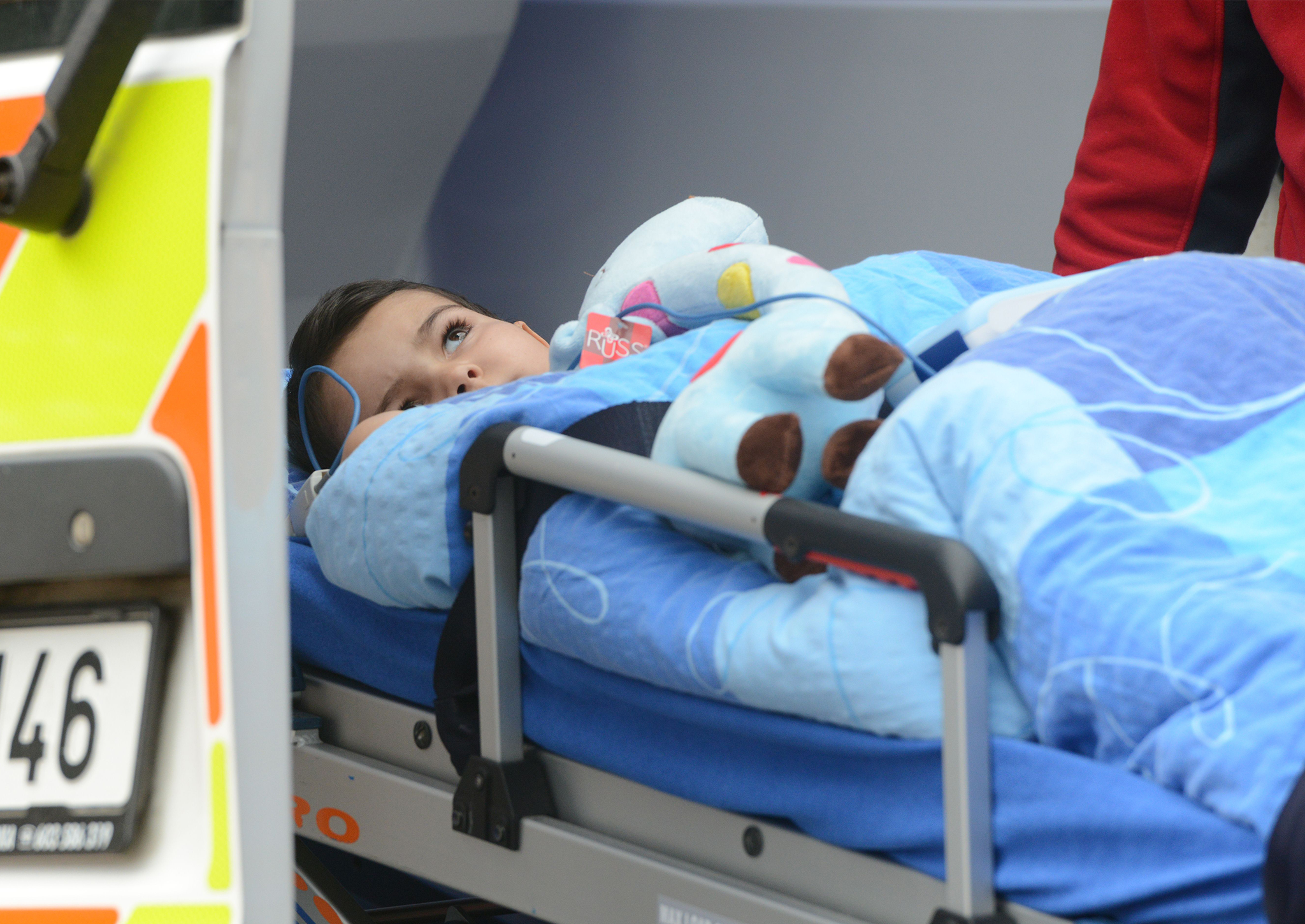Proton beam therapy: Cancer treatment that 'cured' Ashya King is effective and has fewer side effects, study finds
The treatment is only currently available in limited circumstances on the NHS but new treatment centres will be opening in the UK this year

An alternative cancer treatment is just as effective as radiotherapy but as fewer damaging side effects on children, a new study has found.
Proton beam therapy became the subject of national debate in 2014 when the parents of a five-year-old boy were detained by police for taking him from a British hospital to seek the treatment abroad.
Brett and Naghemeh King had disagreed with doctors at Southampton General Hospital over how to treat their son Ashya’s medulloblastoma, a type of brain tumour.
The NHS did not offer proton beam therapy in the UK at the time and had refused to refer them abroad, prompting the parents to travel to a specialist centre in the Czech Republic themselves.
Last March, Mr and Mrs King announced that their son was in remission and Ashya returned to school full-time this month.
A study published in the Lancet Oncology Journal said radiotherapy and proton beam treatment had similar survival rates for medulloblastoma but found that it the less common method has several advantages.
The authors, led by Dr Torunn Yock from the Massachusetts General Hospital in the US, said: “Our findings suggest that proton radiotherapy seems to result in an acceptable degree of toxicity and had similar survival outcomes to those achieved with photon-based radiotherapy.
“Although there remain some effects of treatment on hearing, endocrine, and neurocognitive outcomes - particularly in younger patients - other late effects common in photon-treated patients, such as cardiac, pulmonary, and gastrointestinal toxic effects, were absent.
“Proton radiotherapy resulted in acceptable toxicity and had similar survival outcomes to those noted with conventional radiotherapy, suggesting that the use of the treatment may be an alternative to photon-based treatments.”
The study, published in the Lancet Oncology journal, listed common “toxic” effects of radiotherapy on the heart, lungs and stomach were not seen in those undergoing proton treatment.
They analysed 59 patients with medulloblastoma - the most common kind of malignant brain tumour in children - aged between three and 21 from 2003 to 2009.
Fifty-five of the patients had the tumour partially or completely removed through surgery, while all patients received chemotherapy as well as proton beam therapy.
Three years after treatment, 83 per cent survived without the cancer getting worse, falling to 80 per cent after five years.
In terms of side effects, around one in seven had serious hearing loss after five years and 55 per cent had problems with the neurendocrine system, which regulates hormones.
Dr Yock told BBC Radio 5 Live: “The major finding is that proton therapy is as effective as photon therapy [conventional X-ray radiotherapy] in curing these patients and what is also very exciting is that it is maintaining these high rates of cure but doing so with less late toxicity, which has dramatic quality of life improvements.”
In pictures: Ashya King's case
Show all 22Proton therapy is a highly targeted treatment often used on hard-to-reach cancers and has a lower risk of damaging other body tissue.
High-energy protons, rather than the photons of conventional radiotherapy, penetrate the skin and release energy at the tumour, destroying the capacity of cancer cells to replicate.
Dr Kieran Breen, from the Brain Tumour Research Foundation, told the BBC more research is needed.
“In the longer term, we need to try and understand what effects it will have on people and there are many other forms of tumour both in the brain and in other parts of the body,” he said.
Proton beam therapy is currently only available to treat eye cancers in the UK, with the NHS sending patients for other types abroad, but several new centres are due to open from this year onwards.
The Department of Health has pledged to offer the treatment to up to 1,500 cancer patients at hospitals in London and Manchester from April 2018, following investment worth £250 million.
Additional reporting by PA
Subscribe to Independent Premium to bookmark this article
Want to bookmark your favourite articles and stories to read or reference later? Start your Independent Premium subscription today.

Join our commenting forum
Join thought-provoking conversations, follow other Independent readers and see their replies